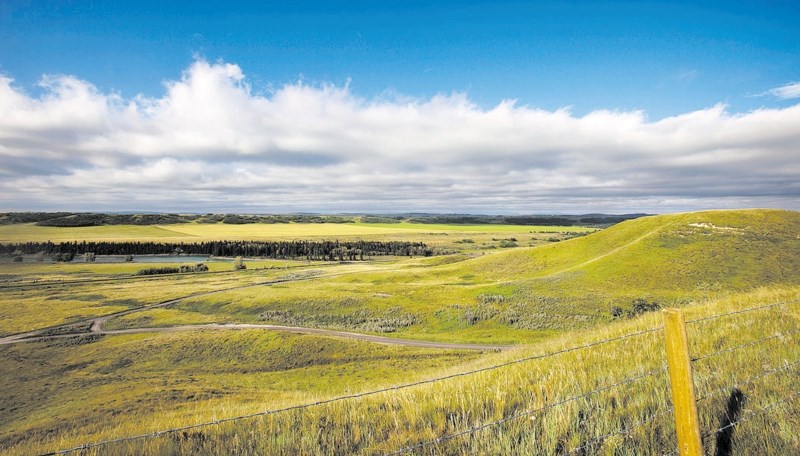Alberta Trail Net made a well-received presentation to Cochrane council members on Nov. 13, outlining the re-routing of the Trans Canada Trail, as it connects Cochrane and Bragg Creek.
The original pathway for this portion of the Trail was to go from Calgary, west along Highway 8, into Kananaskis country and west toward B.C. The path will now go through Glenbow Ranch Provincial Park and will likely be built south along Highway 22, toward Bragg Creek and from there, into the Kananaskis.
“The route was changed a while ago,” explained Linda Strong-Watson executive director of Alberta Trail Net, which is a not-for-profit association that promotes a trail network that connects Albertans, including the Trans Canada Trail.
“With the Trans Canada Trail now being routed through Glenbow Ranch Provincial Park, the next focus is on completing the gap between Cochrane and Bragg Creek,” said Strong-Watson.
“I’m very happy to say that Cochrane council was very supportive and happy to be a part of this.”
The Town of Cochrane will be working closely with Rocky View County (RVC) to establish an exact route that will connect the Trans Canada Trail between Cochrane and Bragg Creek.
Suzanne Gaida, senior manager of community services for the Town of Cochrane, said that while the design is still in its conceptual phase, the trail is part of the town’s Open Spaces Master Plan, which will be revealed to council before the end of 2012.
“(It looks like) the trail will begin on the south side of Cochrane, from James Walker Trail, go toward the Bow River, make its way along the river and connect with the Glenbow Ranch Provincial Park, where they are looking to put in a pedestrian bridge,” said Gaida.
“We will be working closely with the RVC and we’ll have to make sure we have the correct signage up to direct tourist traffic using the trail.”
Gaida said she sees this as a huge pull for tourism in Cochrane. As the portion of the Trans Canada Trail running through Cochrane would run fairly closely to downtown Cochrane, council members were in favour of the potential this would have for local merchants and proprietors.
“In my mind, it’s going to be huge — not only for our residents who use the trail, but it’s also going to bring people from elsewhere…this is a big win for us,” said Gaida.
The cost of the construction of a paved trail is highly variable, but Strong-Watson said it lies in the range of $110,000-$140,000 per kilometre, depending on width, gradation, etc.
While there are a number of provincial grants the municipality can apply for, the onus falls within the municipal budget.
The timeline is to have this leg of construction of the Trans Canada Trail completed by 2017.
To learn more, visit albertatrailnet.com.




